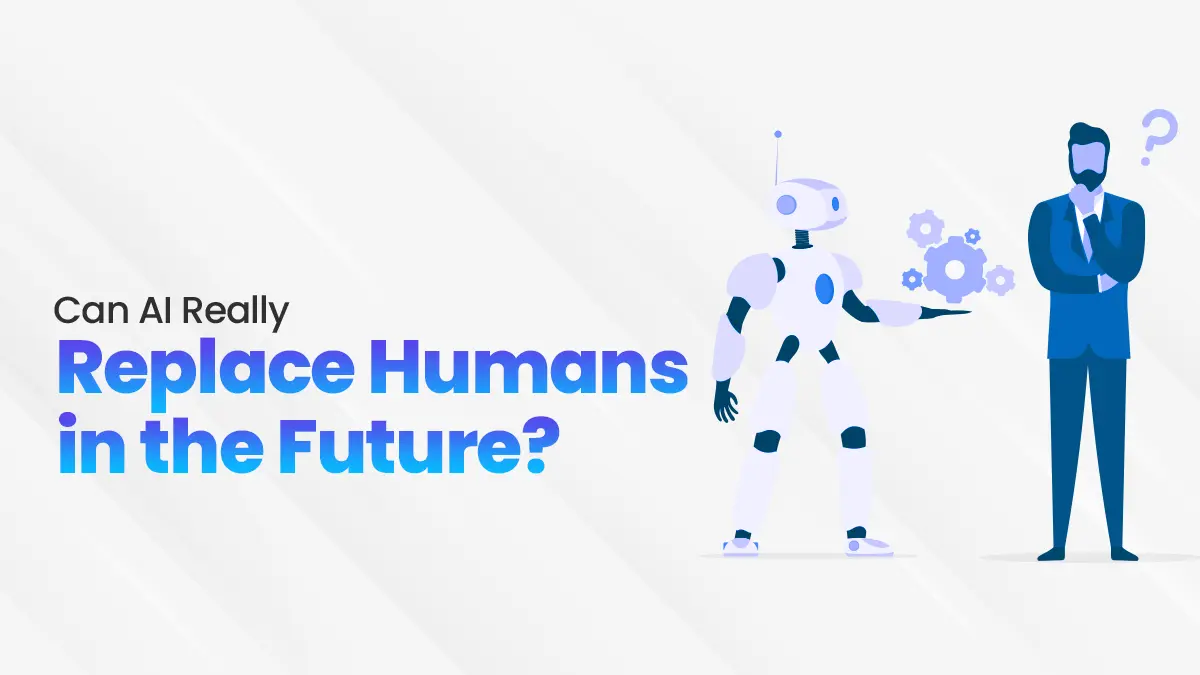Artificial Intelligence (AI) has gained significant attention in recent times, sparking debates about its potential to replace human beings in various fields. People are questioning whether AI and human replacement are inevitable in the future due to the rapid advancement of technology. Will AI replace jobs? Can the machine duplicate the complexity, creativity, and emotional quotient of the human brain? These are merely some of the questions that raised alarm and buzz regarding the prospective future of AI technology.
The Rise Of AI Technology
AI technology has already left its impression in various sectors. From voice assistants such as Siri and Alexa to autonomous vehicles, AI has become an integral part of daily life. But when it comes to the possibility of AI and human replacement, the discussion is more intricate. Though AI may be capable of doing something previously only imaginable by humans e.g., analyzing vast data or even detecting a medical ailment—its strengths are limited in comparison to human skills and experience.
It’s not just about how machines can carry out jobs but also their emotional intelligence, creative potential, and problem-solving ability.
The Impacts Of AI On Jobs
One of the most significant issues about the future of AI technology is whether it can replace human jobs. With AI advancements, machines can now do repetitive, routine, and sometimes risky work. Manufacturing sectors are utilizing AI and robotics to automate production lines, thereby reducing the need for human labor. But then the question remains—will AI replace jobs or just change the nature of work?
AI Replacing Jobs
AI taking jobs away is nothing new. It has been occurring over decades, particularly with the advance of automation. For example, the use of automated cashiers and customer support bots has already replaced certain jobs in retailing and customer support. With technology improving in the field of AI, we will see more professions impacted.
Yet, human replacement by AI could not be so absolute. As AI takes the place of particular jobs, perhaps new positions will arise. In the same way that computer revolutions generated new businesses and occupations in the past, AI might promote new functions calling for human participation, creativity, and guidance.
Artificial Intelligence vs Humans
Artificial intelligence vs. humans remains a contentious topic where each side has valid arguments. On the one hand, AI has a phenomenal edge when it comes to data processing. Machines can process tremendous amounts of data within seconds, processing calculations and making decisions based on patterns in the data. This renders AI extremely useful in industries such as finance, medicine, and logistics, where decisions are data-based.
However, when it comes to creativity, innovation, and emotional intelligence, humans continue to dominate. While AI can replicate the actions and reactions of human beings, it does not understand the emotions behind them. AI may be able to produce art, create music, or pen articles, but it does so by patterns and algorithms and not real creativity or inspiration.
AI and Healthcare
Another field in which humans are superior is the ability to make intricate decisions that involve empathy, ethics, and social factors. For instance, in medicine, although AI may scan medical records and recommend possible treatments, it cannot substitute the doctor-patient relationship, which is established through trust, empathy, and compassion.
AI’s weaknesses in these areas indicate that it might not be capable of fully replacing humans but rather supplementing human capabilities, especially in areas that involve critical thinking, ethical decision-making, and emotional intelligence.
Will AI Replace Jobs in the Future?
With advancements in AI technology, perhaps the most pertinent question is whether AI will automate all jobs. The response is not a simple yes or no. Certain types of jobs that entail repetitive or labor-intensive tasks are more susceptible to being automated and replaced by AI and robots, especially in the manufacturing, agriculture, and logistics sectors. For example, factory laborers could have their work taken over by robots that can execute tasks at a faster rate and with greater efficiency.
However, AI is less likely to replace work based on human imagination, emotional quotient, and reasoning in the near future. Therapists, teachers, artists, and social workers demand human comprehension, compassion, and individuality, something AI lacks.
The Ethical Implications Of AI and Human Replacement
The possibility of AI replacing humans is a major ethical issue. One of the main concerns is the effect on employment. If AI replaces jobs in some sectors, what becomes of the redundant workers? While some believe that AI will open up new employment opportunities, others fear that the rate of technological change will exceed the creation of new jobs, resulting in widespread unemployment and economic disparity.
Also, there are apprehensions regarding the ability that AI would possess if it took humans’ place in important decision-making.
Conclusion
Can AI actually replace human beings in the future? While AI and human replacement are possible in some industries and professions, total human replacement is unlikely in the near term. Human beings have unique talents that machines just can’t accomplish, such as creativity, emotional intelligence, and intricate decision-making.
Rather than concentrating on the possibility of AI replacing jobs, we should also look at how AI and human collaboration can lead to innovation and new opportunities.

